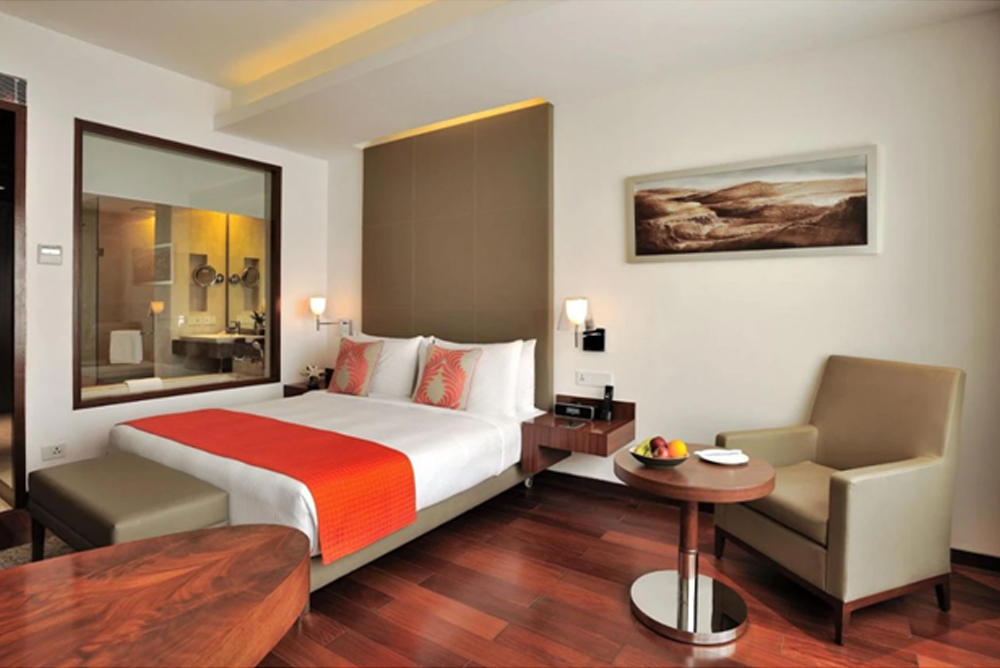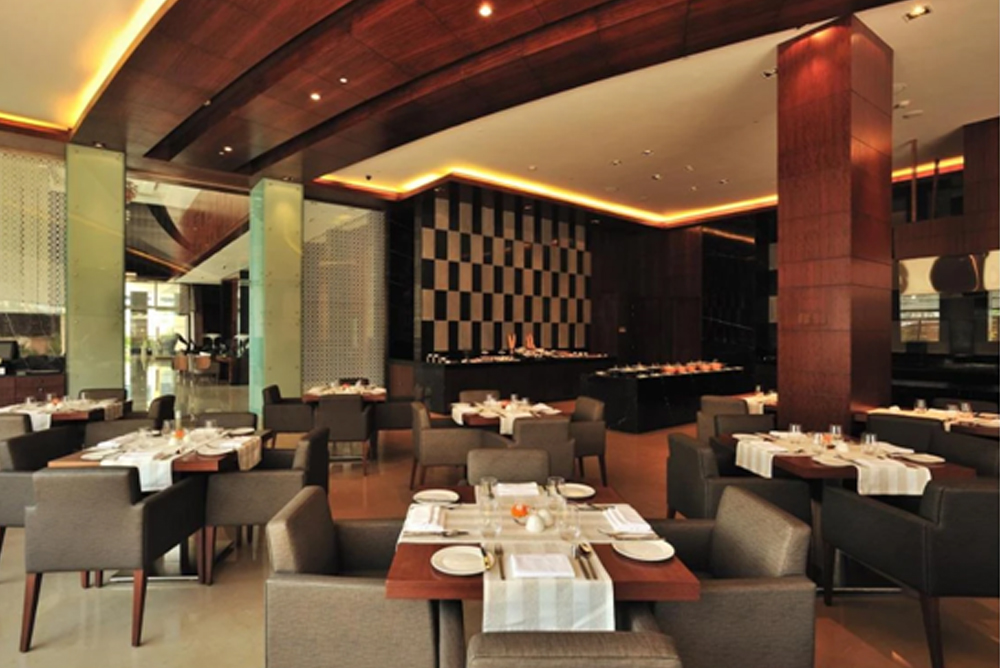Bleisure travel—the strategic fusion of business commitments with leisure experiences—has transformed from a niche concept into a mainstream phenomenon across India’s diverse corporate landscape. This travel philosophy transcends the traditional boundaries between professional obligations and personal enjoyment, creating a more holistic approach to business travel. The evolution of bleisure has been catalyzed by several interconnected factors: revolutionary advancements in digital communication technology, the post-pandemic reassessment of work-life priorities, and the increasing flexibility of corporate travel policies.
India has emerged as a particularly fertile ground for the bleisure revolution, securing its position as the second-largest market globally for this travel segment. This remarkable standing reflects not merely a temporary trend but a fundamental shift in how Indian professionals conceptualize their relationship with travel, work, and leisure experiences. The country’s rich cultural heritage, geographical diversity, and rapidly developing infrastructure create an ideal environment where business travelers can seamlessly transition between professional commitments and immersive cultural experiences.
India’s Prominent Position in the Global Bleisure Landscape
India’s emergence as the second-largest bleisure market globally represents a significant repositioning within the international travel ecosystem. This achievement stems from a unique confluence of factors that have created ideal conditions for bleisure travel to flourish:
1. Demographic Dividend: India’s workforce increasingly comprises millennials and Gen Z professionals who approach travel with fundamentally different expectations than previous generations. These younger professionals view travel not merely as a means to an end but as an opportunity for personal growth and cultural enrichment. They actively seek experiences that blend professional development with authentic cultural immersion.
2. Digital Nomad Culture: The proliferation of digital nomadism has found particular resonance in India’s tech-savvy professional community. Major metropolitan centers like Bangalore, Pune, and Hyderabad have witnessed the emergence of co-working spaces, digital hubs, and bleisure-friendly accommodations that cater specifically to professionals who wish to extend their business trips.
3. Corporate Policy Evolution: Forward-thinking Indian corporations and multinational companies with significant Indian operations have begun reconceptualizing their travel policies to accommodate bleisure extensions. This shift recognizes that allowing employees to incorporate leisure elements into business trips can enhance productivity, boost morale, and serve as a compelling retention tool in competitive labor markets.
4. Domestic Travel Renaissance: Post-pandemic travel restrictions sparked a renewed appreciation for domestic destinations among Indian professionals. Business travelers discovered that extending stays in cities like Jaipur, Kochi, or Udaipur allowed them to experience India’s cultural wealth while maintaining professional productivity.
Economic Impact and Industry Transformation
The bleisure phenomenon has catalyzed significant economic ripple effects throughout India’s travel ecosystem:
Financial Recovery and Growth Trajectory
The Indian travel and tourism sector has demonstrated remarkable resilience in its post-pandemic recovery journey. Industry revenues have rebounded to exceed 70% of pre-pandemic benchmarks, with bleisure travel serving as a critical accelerator of this recovery. Financial projections paint an optimistic picture, with the sector expected to reach a valuation of $512 billion by 2028—representing one of the most robust growth trajectories globally.
This growth is further contextualized by examining India’s position within the global bleisure market, which was valued at $315.3 billion in 2022 and is projected to reach $731.4 billion by 2032, reflecting a compound annual growth rate of 8.9%. India’s contribution to this expansion is disproportionately significant, driven by its large professional workforce and increasing corporate travel budgets.
Hospitality Sector Innovation
The hospitality industry in India has undergone a fundamental transformation to accommodate the distinctive needs of bleisure travelers:
1. Infrastructure Development: Luxury and mid-tier hotel chains are strategically expanding their footprints beyond traditional business districts to include leisure-oriented locations. This calculated expansion allows business travelers to access both commercial centers and cultural attractions within the same trip.
2. Specialized Service Offerings: Properties across metropolitan and tier-two cities have introduced bleisure-specific amenities including:
○ Extended spa and wellness services with flexible scheduling options designed to accommodate unpredictable business schedules
○ Dedicated workspace zones with enterprise-grade connectivity and privacy features
○ Personalized concierge services specializing in creating bespoke itineraries that maximize limited leisure time
○ Family integration programs designed for professionals who bring family members to extend business trips into personal vacations
3. Cultural Integration Programs: Leading hospitality brands have developed sophisticated cultural immersion experiences tailored to time-constrained business travelers, including abbreviated cooking classes, expedited historical tours, and executive-focused cultural briefings designed to provide authentic experiences within tight schedules.
Evolving Bleisure Travel Patterns and Preferences
The bleisure segment in India has developed distinctive characteristics that reflect both global trends and uniquely Indian preferences:
Duration and Scheduling Patterns
Research indicates that Indian bleisure travelers typically extend business trips by 2-4 days, with weekend extensions being particularly popular. This pattern differs from Western markets where extensions tend to be longer. The difference reflects India’s still-evolving corporate attitudes toward extended absences from traditional office environments.
Metropolitan centers like Mumbai, Delhi, and Bangalore serve as primary bleisure hubs, but secondary destinations including Goa, Jaipur, and Kerala have emerged as popular extension locations due to their proximity to major business centers and their distinctive cultural offerings.
Accommodation Preferences for the Bleisure Traveler
The sophisticated Indian bleisure traveler increasingly seeks accommodations that seamlessly blend work and leisure, creating new opportunities for business hotels in Gurgaon
1. Strategic Business Hotel Selection: Anya Business Hotel, positioned strategically on Golf Course Road in Gurgaon, has transformed the bleisure accommodation landscape by offering specialized packages for travelers attending exhibitions and trade shows. With its proximity to One Horizon Centre, the property has become a preferred choice for professionals seeking to extend their business trips by several days, providing seamless access to both corporate hubs and leisure attractions.
2. Exhibition and Trade Show Integration: Unlike traditional 5-star hotels on Golf Course Road Gurgaon, Anya business hotel in gurgaon has pioneered dedicated services specifically for exhibition and trade show attendees. These include specialized transportation to major exhibition venues, dedicated business concierge services to facilitate productive stays, and post-exhibition relaxation packages that encourage travelers to extend their visits beyond the professional component.
3. Flexible Space Solutions: Recognizing that bleisure travelers require more versatile accommodations, Business Hotels like Anya offer reconfigurable living spaces that transition effortlessly between professional and leisure environments. These innovative room designs appeal particularly to bleisure travelers attending exhibitions and trade shows who seek hotel deals in Gurgaon that provide both workspace functionality and relaxation areas without requiring separate bookings.
4. Localized Bleisure Packages: Moving beyond standard hotel deals in Gurgaon, business hotel in Gurgaon have developed comprehensive bleisure packages specifically tailored to exhibition and trade show schedules. These packages include pre-negotiated extended stay rates, specialized exhibition support services, and curated leisure experiences that showcase Gurgaon’s emerging cultural attractions – creating compelling reasons for business travelers to transform mandatory business trips into enriching bleisure experiences.
5. Technological Integration: Understanding that seamless connectivity is essential for bleisure travelers, business hotels in Gurgaon have invested in enterprise-grade technological infrastructure that surpasses other hotels near One Horizon Centre. Their dedicated exhibition and trade show support includes specialized digital services ranging from virtual meeting rooms to secure document processing capabilities, ensuring guests can confidently balance professional obligations with leisure exploration.
Experience the perfect bleisure balance—reserve your stay at Anya Hotel and enjoy special packages for upcoming exhibitions in Delhi with the convenience of one of the finest hotels near Golf Course Road.
Experience Priorities
The modern Indian bleisure traveler prioritizes several key experience categories:
1. Wellness Integration: Stress-reduction and wellness activities rank consistently high among Indian bleisure travelers’ priorities. This has driven the expansion of hotel spa facilities, meditation programs, and fitness offerings specifically designed to counterbalance business stress.
2. Gastronomic Exploration: Culinary tourism has emerged as a cornerstone of the Indian bleisure experience. Travelers increasingly seek authentic local dining experiences, cooking classes, and food tours that can be accommodated within limited timeframes.
3. Cultural Authenticity: Despite time constraints, bleisure travelers demonstrate a strong preference for genuine cultural experiences over manufactured tourist attractions. This has sparked the development of executive-focused cultural immersion programs designed to provide depth of experience within compressed timeframes.
4. Sustainability Consciousness: Eco-friendly and socially responsible travel experiences have gained significant traction among Indian bleisure travelers, particularly among younger professionals. This has driven the growth of properties and experiences that combine business functionality with environmental consciousness.
Technology as a Bleisure Enabler
Technological advancement serves as both catalyst and enabler for India’s bleisure revolution:
1. Connectivity Revolution: The widespread availability of high-speed connectivity throughout India—even in remote destinations—has removed a critical barrier to extending business trips. Professionals can now confidently commit to leisure extensions knowing they can remain connected to work obligations if necessary.
2. Productivity Software Ecosystem: The normalization of cloud-based collaboration tools and project management platforms has facilitated seamless work continuation regardless of location, enabling professionals to blend work and leisure more effectively.
3. Specialized Applications: The market has witnessed the emergence of India-specific bleisure applications designed to help travelers maximize their extended stays through curated recommendations, time-optimization tools, and business-leisure scheduling assistance.
Corporate Adoption and Policy Evolution
Indian corporations and multinational companies operating in India have demonstrated varying approaches to embracing the bleisure concept:
1. Progressive Policy Adoption: Forward-thinking companies have formalized bleisure policies that explicitly permit and sometimes actively encourage employees to extend business trips. These policies often include provisions for shared accommodation costs, transportation considerations, and insurance coverage during leisure extensions.
2. Wellness Integration: Some corporations have reframed bleisure not merely as an employee perk but as an integral component of their wellness programs, recognizing that allowing employees to decompress and experience new environments contributes to mental health and productivity.
3. Team-Building Applications: Corporate retreat planners increasingly incorporate bleisure elements into team gatherings, creating hybrid experiences that combine strategic business objectives with team bonding through shared leisure experiences.
Future Trajectories and Emerging Trends
The bleisure landscape in India continues to evolve, with several emerging trends poised to shape its future development:
1. Secondary Destination Development: While metropolitan centers currently dominate the bleisure landscape, secondary cities and destinations are positioning themselves to capture this lucrative market. Places like Pushkar, Pondicherry, and the Northeastern states are developing bleisure-specific infrastructure and marketing campaigns.
2. Workation Integration: The distinction between bleisure and workation is increasingly blurring, with many professionals opting for extended remote work periods in leisure destinations, punctuated by in-person business commitments. This hybrid model represents the next evolution of the bleisure concept.
3. Family-Centric Bleisure: The incorporation of family members into bleisure trips is gaining significant traction, with hotels and destinations developing specialized programs for spouses and children of business travelers. This trend reflects a broader desire to minimize family separation during business travel.
4. Sustainability Focus: Eco-conscious bleisure options are expected to see accelerated growth, with carbon-neutral accommodations and environmentally responsible experiences gaining market share among socially conscious travelers.
Bleisure travel in India has evolved from a convenient option into a transformative force reshaping the entire travel ecosystem. Its continued growth reflects fundamental shifts in professional priorities, corporate cultures, and personal values. As the line between work and leisure becomes increasingly permeable, India’s travel industry continues to adapt and innovate, creating ever more sophisticated offerings for the bleisure traveler.
The concept’s enduring appeal lies in its ability to address multiple contemporary needs simultaneously: the professional’s desire for efficiency, the human need for enriching experiences, and the corporate requirement for productivity. As these forces continue to converge, bleisure travel is positioned to remain not merely a trend but a fundamental component of India’s travel landscape for years to come.
With its rich cultural heritage, geographic diversity, and rapidly evolving business environment, India offers an ideal laboratory for the continued development of the bleisure concept. The practices and innovations emerging from the Indian market today may well define the global bleisure experience of tomorrow.


